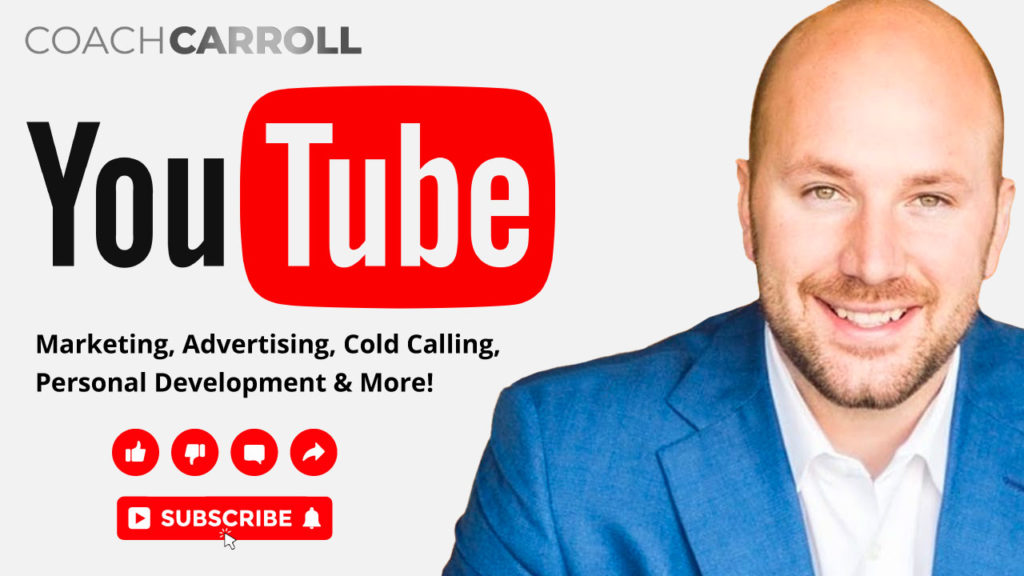So when I see these guys say, “Oh man…I pay $63 a month and I got a million dollars in coverage!” The problem is, you’ve got a million dollars in general liability, maybe, but nothing else.
Your truck’s not covered…
If your trailer gets stolen, it’s not covered…
So I see a lot of people on Facebook in the groups and chats, talking about insurance and what type of insurance they need- predominantly in a service based business. I’m going to give you a couple of tips today so that you are more aware of what proper coverage looks like and what it means.
By no means am I an insurance agent. Nathan Shanks takes care of all my insurance needs, I highly recommend you check him out. But here’s a couple of tips on exactly what to look for so that you’re better prepared by knowing what you’re dealing with. The biggest thing that most people don’t understand or isn’t explained to them well enough is policy limits. You’re gonna see two different numbers on this: aggregate and per occurrence.
So, typically if you’re a contractor when you say “I need a million dollar policy for general liability” that means that your general liability insurance will be a million per occurrence, and then typically 2 million aggregate. Now what happens is, this changes based on who you’re working with. So, working with grandma down the street, she doesn’t care, as long as you’ve got $100,000 worth of insurance, she’ll hire you. She just wants to see that you have insurance. BUT- if you take a client like a university, a hospital, or a big construction company…we actually just did a shopping center and they needed us to have $5 million worth of liability insurance. Like what kinda damage can my guys with the pressure washer do that would cost $5 million?! It doesn’t matter, that’s the requirements, that’s what you have to have on your policy. So, on your declaration page, like the main page, you’ll see on there that it’ll say per occurrence and then aggregate. Aggregate is total, like per year that you can make claims. And the per occurrence is obviously how much money a claim can be per occurrence. So, that’s one of the biggest things that I think gets misconstrued. So I recommend at least a million dollars policy. And that’s just for your general liability, meaning like your workmanship and things like that.
Secondly, is what they call an inland marine policy. What that means is that it’s gonna cover your equipment. So, if you have trailers like we do with pressure washers and things like that- my power washing company, Easy Pro, has all these big power washing rigs, we’ve got trucks, etc. When you start layering vehicles in inland marine policy, you start adding these different assets, that’s gonna make your premium actually go up. So when I see these guys say, “Oh man…I pay $63 a month and I got a million dollars in coverage!” The problem is, you’ve got a million dollars in general liability, maybe, but nothing else.
Your truck’s not covered…
If your trailer gets stolen, it’s not covered…
So, I highly recommend looking into an inland marine policy if you’re a contractor, and adding that on as a rider. or it may just be part of the policy. Again, I’m not an insurance agent, I’ve just worked with a lot of insurance agents and so I’ve been fortunate enough to have some great mentors over the years. So inland marine and the policy limits.
The other thing is that you wanna make sure that your insurance agent has all of the information on your equipment. For example: serial numbers, year, make, model, all of that is very, very important, because they have to have that itemized. Otherwise, if something gets stolen, then the claims adjuster could come back and say, “Hey look, this was not added to your policy it’s not covered.”
So again, I want you to understand this terminology, I want you to understand how insurance works so that you’re better prepared to have that conversation with an agent. Again, you can reach out to Nathan, I’m sure he’d love to give you a quote-he writes insurance all over the US. He does a great job for us. And he can shop multiple carriers cause he’s an independent agent as well.
The last tip that I wanna give you is to make sure, I know this sounds stupid, but make sure you pay your premiums. Make sure you don’t let your policy lapse and go into a cancel. Insurance agents call this a lapse cancellation. Once you don’t pay your bill for so many days or a month, then they’ll actually cancel your policy, and then you’ve got to get it reinstated. Not every time, but most of the time, this will come with a price increase because they’re gonna redo the underwriting on your policy. You don’t wanna get in a situation where, you know, you’re out doing a job, you forgot to pay your bill, the policy lapsed and canceled, and then you have a claim, and you go back, you’re going “Come on man, you gotta help me out here, I paid for nine months in a row I just forgot the 10th month.” Listen, they will find any and every reason not to pay a claim. That’s their job, that’s how they make money, right? They don’t wanna pay a claim if they don’t have to, we’ll leave it at that.
Look at your policy limits, check out the inland marine policy, and then make sure that you’re paying your bills on time so that you don’t get a lapse cancel. That will to keep you covered and protected. And maybe in another video, we’ll get into like employee benefits and all the other crazy stuff that comes on with insurance. But as a contractor, those are the basics that you wanna look at. And then also that packet they give you, those are all the things that they’ll exclude.
Hopefully this video helps you guys out, and it helps you understand business insurance a little better. I know it’s a pretty boring topic, but definitely things that I wish I would’ve known earlier on in business. And I’m very grateful for Mark Smith, which was my first insurance agent that taught me so much about insurance and has really helped me out, not only just in the insurance world but with business in itself. So find you a great mentor, I can’t say that enough, and then find your great insurance agent to go along with that CPA and that attorney that you’ve got as well.
Here’s to your success.








